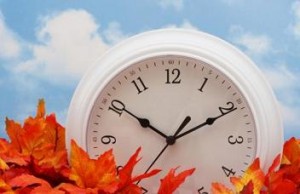
More evidence that low-calorie sweeteners are bad for your health
Studies show that artificial sweeteners can raise the risk of hypertension, metabolic syndrome, type 2 diabetes and heart disease, including stroke.

Natural Health News — School’s starting soon, and a lot of kids (and some adults) who were sleeping late this summer are struggling to reset their sleep cycles.
All summer, those biological clocks have been getting pushed back. Artificial light allows us to work and play into the wee hours, interfering with the natural light-dark cycle that, over most of human history, began at sunrise and ended just after sunset.
But there’s a price to be paid for this modern shifting of biological clocks: research shows that long-term indulgence in these late sleep schedules leads to unwanted weight gain and obesity, mood problems, substance abuse and, of course, morning sleepiness.
Light and sleep are critical to good health, and that’s one reason NIH funded a team at the University of Colorado Boulder to investigate the impact of natural light on our modern sleep patterns.
Their findings were published in the journal Current Biology.
Getting in synch
Natural light synchronises the internal body clock in the brain’s hypothalamus with seasonal and daily time cues present in the environment. It’s an important link to our natural world, telling us when to eat and sleep.
The body clock is also critical for regulating levels of the hormone melatonin – which increase before bedtime, making us feel sleepy, and decrease in the morning.
In this small study investigators monitored eight volunteers for one week of typical work and play. These participants went to sleep around 12:30 am and rose at 8 am.
The researchers then took them on a weeklong camping trip in the mountains of Colorado—separating them from smartphones (gasp), TVs, laptops, and even flashlights.
What they discovered was that after one week of light exposure limited to just sunlight and campfires, everyone’s body clock shifted to match the natural light cycle, resulting in earlier bed and wake times.
So if you’re struggling to get to bed early and rushing off to work, and you’ve still got a week or two available, do yourself a favour and squeeze in someo time outdoors before the summer well and truly ends. Your body, and your body clock, will thank you.
If camping isn’t in the cards, the researchers recommend an early morning walk to kick off your day – or try eating breakfast outside in the sunlight. At night turn down the house lights, and dim those smartphones, TVs, and laptops (or get off them entirely).
Sweet dreams!

Please subscribe me to your newsletter mailing list. I have read the
privacy statement